In a riveting documentary, a young American filmmaker with Niçois roots tells the amazing story of a true living legend.
In October 2013, two life paths intersected that could not be more different. One of them belongs to The Honorable Damon J. Keith, the nonagenarian African-American judge from Detroit, Michigan, who over the course of his almost 50 year career as a U.S. Federal Judge has delivered some of the landmark rulings that shape much of today’s American society. On the other end, 25 year old Jesse Nesser, a freshly minted documentary filmmaker who was born in San Francisco, grew up moving around the globe, and also called Nice his home during his teen years. When Jesse met Judge Keith, he knew he wanted… no, he needed… to tell the inspiring story of an extraordinary man – a man who has beat impossible odds…. who is the hero of heroes, and one of the most quietly influential people in the United States.
Many Americans have never even heard Judge Keith’s name or couldn’t place his face, but there is hardly a life from coast to shining coast that has not in one way or another been touched by his rulings over the course of this past half century. He, the grandson of slaves… the one who grew up in an unjust, segregated country that would deny him his basic civil rights, has contributed decisively to weaving the fabric of modern, democratic American society.
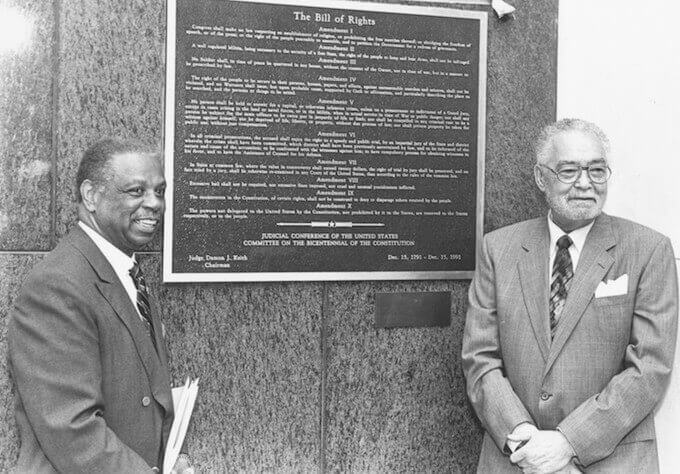
When Damon J. Keith was born into his African-American family in Detroit on July 4, 1922, nothing could possibly lead to think that this young boy, the youngest of six kids, would once become a beacon of social and legal justice. The Jim Crow era was still in full swing, and Black children didn’t have many opportunities for education or a career, not even the brightest ones. But his Southern-rooted parents had instilled sound values in their children. “The finest man in my life was my father, who was the epitome of what a human being should be. He was my motivation and my desire to make something of myself,” he says. So after school, Damon – whose name in Greek means “taming gently” – enrolled at West Virginia State, a primarily Black college, to study for his bachelor’s degree. He then served in the equally segregated Army from 1943-46, hoping that a spirit of camaraderie and patriotism could overcome the racism he had experienced since his earliest childhood. Instead, he found himself limited to demeaning kitchen duties, and upon his return from service, was granted fewer civil rights than Nazi POWs. He was bitterly disenchanted with his country.
In the late 1940s, the dawn of the Civil Rights era, Mr. Keith pursued a law degree and among others enrolled at the prestigious Howard University, where future Supreme Court Justice Thurgood Marshall was teaching. He earned his JD but then could not find a better job than cleaning toilets at the Detroit News offices. He tried hard to accept his circumstances as gracefully as possible but as his biography Crusader for Justice recounts…
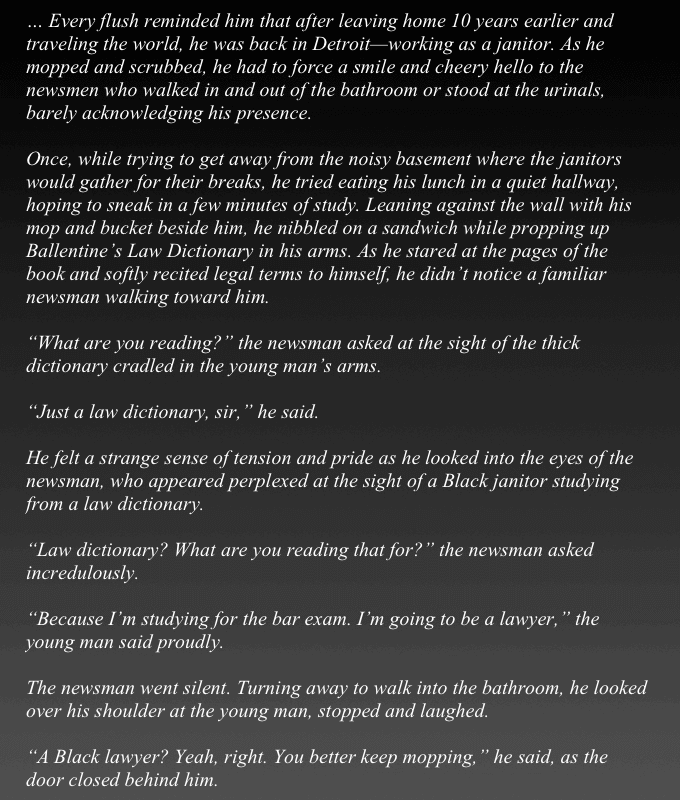
However, he was convinced that he could do a great job – as good as any other lawyer if not better. His perseverance and hard work paid off. He became the first Black attorney in Michigan, and in 1964 founded his own lawfirm together with several partners. Naturally he was drawn toward racial and social justice issues, and neither the quality of his work nor his engagement for social and civil rights went unnoticed. As a co-chairman in Michigan’s first civil rights commission, and instrumental in calming the infamous 1967 Detroit riot, he was then called to the Bench as a Federal Judge in 1967. After ten years at the U.S. District Court (MI), President Jimmy Carter appointed Judge Keith to the U.S. Court of Appeals in 1977 where he has been serving without interruption to this day.
He was a mere rookie judge at court when he handled his first high-profile case, and over time he has accumulated a plethora of them. Many of them focused on the right to fair employment, housing, education, or protection from police brutality. In another landmark case, a precursor to Watergate actually, Judge Keith ruled that the Government could not wiretap U.S. citizens without a warrant. Guided by a fierce sense of clarity and transparency, he coined the famous and often-cited words, “Democracy dies in the dark”. Seeking longterm solutions, and basing his rulings strictly on the law, his decisions often ripple from his community across the entire country. He acquired a reputation for being extremely fair – sometimes harsh but never biased – and has often been called “a model of humanity and civic leadership.”
That reputation, and his passion for civil rights, had already earned Damon J. Keith the friendship of justice advocates the world over even before he was called to the Bench as a judge, and would continue thereafter until this day. He had stood with Dr. Martin Luther King Jr. and had been an adviser to President John F. Kennedy. He was a staunch friend and ally of Rosa Parks. Everyone sought his company and his advice – American presidents, heads of states from around the world, civil rights campaigners, show biz and sports personalities…. Malcolm X and Henri Louis Gates…. Aretha Franklin and Bill Cosby… Muhammad Ali and Willie Horton… Colin Powell and Condoleeza Rice. Judge Keith’s office is studded with photographs of prominent citizens who all came to see him. When Nelson Mandela came to Detroit in 1990, the South African freedom fighter had but one request: to meet Judge Keith.
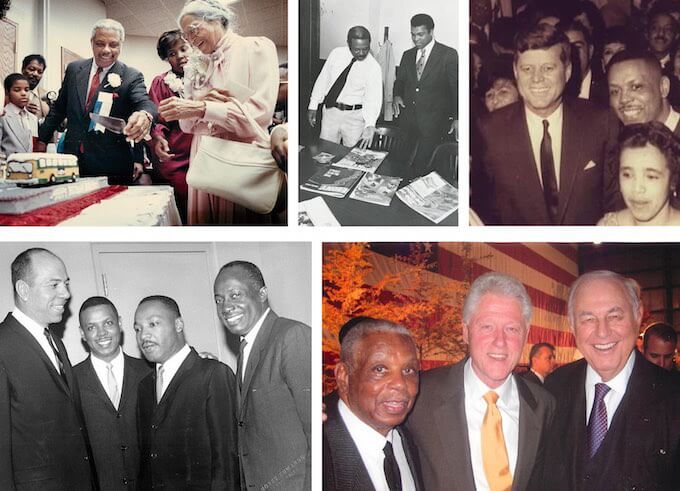
Never forgetting his own early obstacles, Judge Keith also dedicated himself to mentoring young Black and female attorneys. “You never know who you touch,” he says. “It has been said that I have hired more Black lawyers and women as law clerks than any other federal judge in the country. I don’t know if that’s true or not, but I tried to have the sense that I have an obligation to touch who I could.”
Countless medals and recognitions, an honorary doctorate in law from Harvard, and other top honours rewarded his career. But there were also those elements of American society who just couldn’t see beyond their limited horizon: During a 1991 meeting of the Commission on the Bicentennial of the U.S. Constitution, on which Mr. Keith served as Chairman, something happened that was as disturbing as the chairmanship was prestigious. While he stood outside the hotel during a break, a car pulled up and a middle-aged man in a business suit, assuming the then 69 year old judge was a porter, told him to park his car. In other instances, his ruling caused the Ku Klux Klan to step up and burn buses, and there were certain white supremacist voices who whispered (or shouted) that he was doing way too much for Blacks.
Young Jesse Nesser’s course of life had been quite different. Jesse was a White kid whose father’s military job required frequent international moves, and so he and his brother Gabriel grew up in Italy, then Gibraltar, and eventually the family came to live in Nice. Jesse was a movie buff from his youngest age, so much so that he got a “job” at the army base video store in Vicenza, Italy when he was just 10 years old – unpaid of course but he was allowed to watch all the age-appropriate videos he wanted, and became quite the walking, talking film encyclopedia. Indiana Jones in all its declinations was his personal cult movie, and Steven Spielberg his preferred director.
Fast forward a few years…. Jesse is now attending the International School of Nice, renowned for its excellent performing arts track. ISN headmaster David Johnson has close personal ties to Africa, and the school organizes an annual trip to Tanzania for students to help with local work projects. Jesse decides to tag along to make a documentary out of the trip…. and it would prove to be a decisive point in his young life. In 2008, “Tanzania” would become his first documentary – the first-hand account of the heartbreak and culture shock this group of wealthy international high schoolers experiences in a rural part of the East African country as they are helping to build a school.
After graduation from ISN in 2008, it was a toss-up between enrolling at the Université de Paris or a small liberal arts college in Marlboro, Vermont. Jesse opted for the latter, pursuing Political Conflict and Documentary Film studies. Talk about culture shock… coming back from lively, sunny, crowded Nice on the blue Mediterranean shores to smalltown America with inclement winters and a population of “a handful”. Jesse continues to work hard on his film projects, developing a taste for social issues. His second documentary, “The Ranch for Kids”, followed in 2010 and examines the detrimental role fetal alcohol syndrome can play in overseas adoptions.
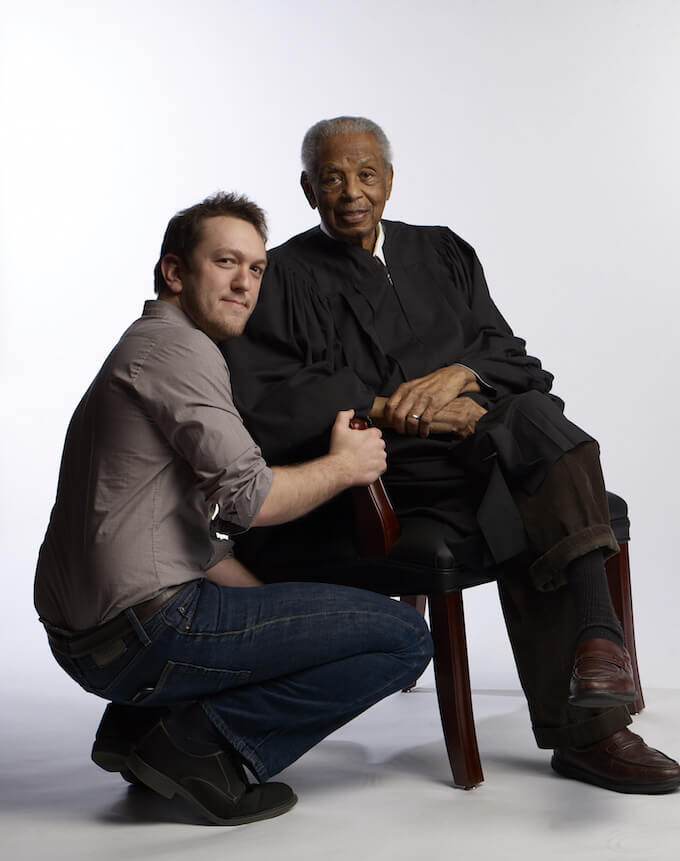
In October 2013, Jesse’s uncle Mitch suggests to meet a good friend of his, a judge who has done some remarkable work: The Honorable Damon J. Keith. Mitch, that’s not any Mitch, but Mitch Albom, international bestselling author of contemporary classics such as “Tuesdays with Morrie” and “The Five People You Meet in Heaven”, staples on every self-respecting bookshelf in the nation. The night before Jesse has the opportunity to meet the formidable elder, he casually picks up his biography just to get a general sense…. and ends up devouring it cover to cover. The story that unfolds on the pages is one begging to be told in a documentary, and Jesse is starting to think it could fall to him to do it.
Meeting 91 year old Mr. Keith in person left no less of an impression on the young man. “He is tremendously charismatic, warm, a storyteller, the grandfatherly type. A small man with a huge presence,” he raves. Once Jesse presented his idea of a documentary to the judge, he got a lukewarm response…. but not because Mr. Keith didn’t trust in his talent – he was quite simply too humble. He only warmed up to the idea when he considered that libraries and schools might benefit from learning about his story, and eventually agreed.
Jesse quickly found sponsors, among them Ford and DTE Energy, the Michigan power company, and soon had a budget of $235,000 to work with. With pre-production done, the actual filming took place between May and October 2014 in many of the locations meaningful to Judge Keith throughout his life and career. Detroit of course, but also Washington DC or Cincinnati. Given that he still works, the film schedule was quite a logistic exercise but the elder was invariably amenable, gracious, and cooperative. “And what did he enjoy most about the film work?” we want to know. “The clapper. He was really fascinated with the clapper,” Jesse tells us.
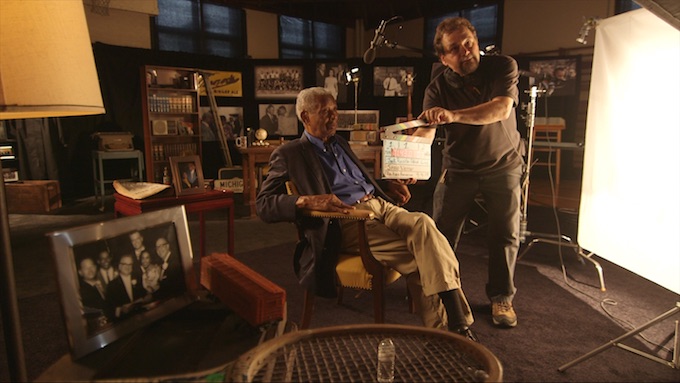
He also gives us a peek inside his director mind: “As time progressed, and I got to know him more and listen to him more, it became obvious that the stories he was telling were so relevant today. Only today, everybody with an Apple phone wants to be an activist, an analyst, or simply a loud mouth. It doesn’t matter whether you’re 20 years old or 50 – everybody wants to say something and pretend like they are an expert. And while I love the freedom for everyone to have an opinion, to some extent it dilutes the conversation when you can’t distinguish who may be speaking well intentioned passion vs. those who have lived experience. Judge Keith has lived experience. I thought it was important to give him that space and opportunity to give the rest of us insight into how these issues can be addressed effectively. For this reason, we made the early decision to not use a narrator but instead have Judge Keith tell his own story in his own words.”
It worked. The final product, a 90 minute documentary called “Walk with Me”, just premiered in Detroit on June 17 in the presence of Judge Keith as the Guest of Honour, and it received excellent reviews. The title has a deeper meaning, Jesse explains. “At first, I thought of it because it’s something he would constantly say to me. He would loop his arm with mine and literally walk with me. Then as the movie shaped up, the structure actually had the film’s audience walking with Judge Keith through nine decades of history. We see him constantly walking throughout the movie and it becomes a quasi-motif. We wanted to make sure people had a fair understanding of what the movie was so we settled on ’Walk With Me: The Trials of Damon J. Keith’ as its full official title.” Jesse also points out that proceeds from the première go to S.A.Y. Detroit, the nation’s first free medical clinic devoted to homeless children and their mothers, a charity also supported by Mitch Albom.
{vimeo}122676385{/vimeo}
With Judge Keith’s biography, his lifelong fight for racial justice, and the current climate in America so intimately intertwined, this documentary is especially pertinent today. The social fabric that he helped stitch together, threatens to come apart at the seams with renewed racial conflicts, undue police brutality against unarmed Black citizens, and Black churches burning in the South. As a sitting judge, Mr. Keith withholds his opinion in public but he does have a saying that encapsulates much of his philosophy, “Whom the Devil would destroy, he first makes angry.”
Among those who have already had the opportunity to see “Walk With Me” is Dr. Johnny Lake, a leading Black American fellow civil rights fighter, educator, and advocate for justice himself. Paying tribute to Mr. Keith’s remarkable career, he eloquently sums up what Judge Keith was up against, what he overcame, and what that means for all of us today, regardless of race:
“Frederick Douglass, in his Fourth of July Speech, said, “Oppression makes a wise man mad.” Judge Keith, a young Black man who wanted to be a lawyer, like Douglass, faced considerable oppression. Despite angered by insults, and intense racial discrimination, Keith held strongly to his beliefs in true democracy for all and proved himself courageous enough to live by these beliefs, despite many criticisms and challenges, even from sitting presidents. His story is a powerful lesson and model for every American. Change is possible.”
Independence Day on July 4 marks America’s 239th birthday. It also marks the Honorable Damon J. Keith’s 93rd birthday, and we join the world in sending our very best wishes. Jesse Nesser’s well-written and candid documentary is a very special birthday gift, honouring a life so full of accomplishments – a life that started out under such difficult circumstances. But it is truly Judge Keith who honors us with the legacy of a life dedicated to equality and fairness in the starspangled nation that had no qualms taking his basic rights from him all those decades ago.
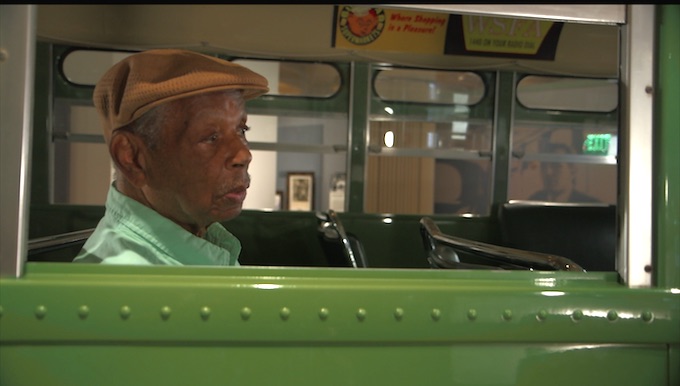
Natja Igney is a senior global communications strategist with 1021 Global Communications Consulting. She has a particular interest in theatre and filmmaking.
All images courtesy Jesse Nesser


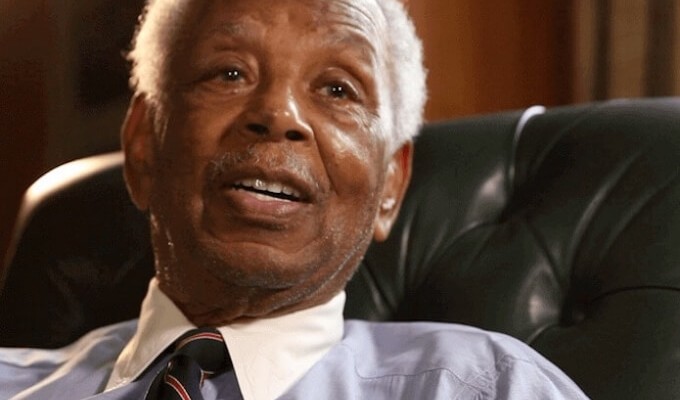

Leave a Reply